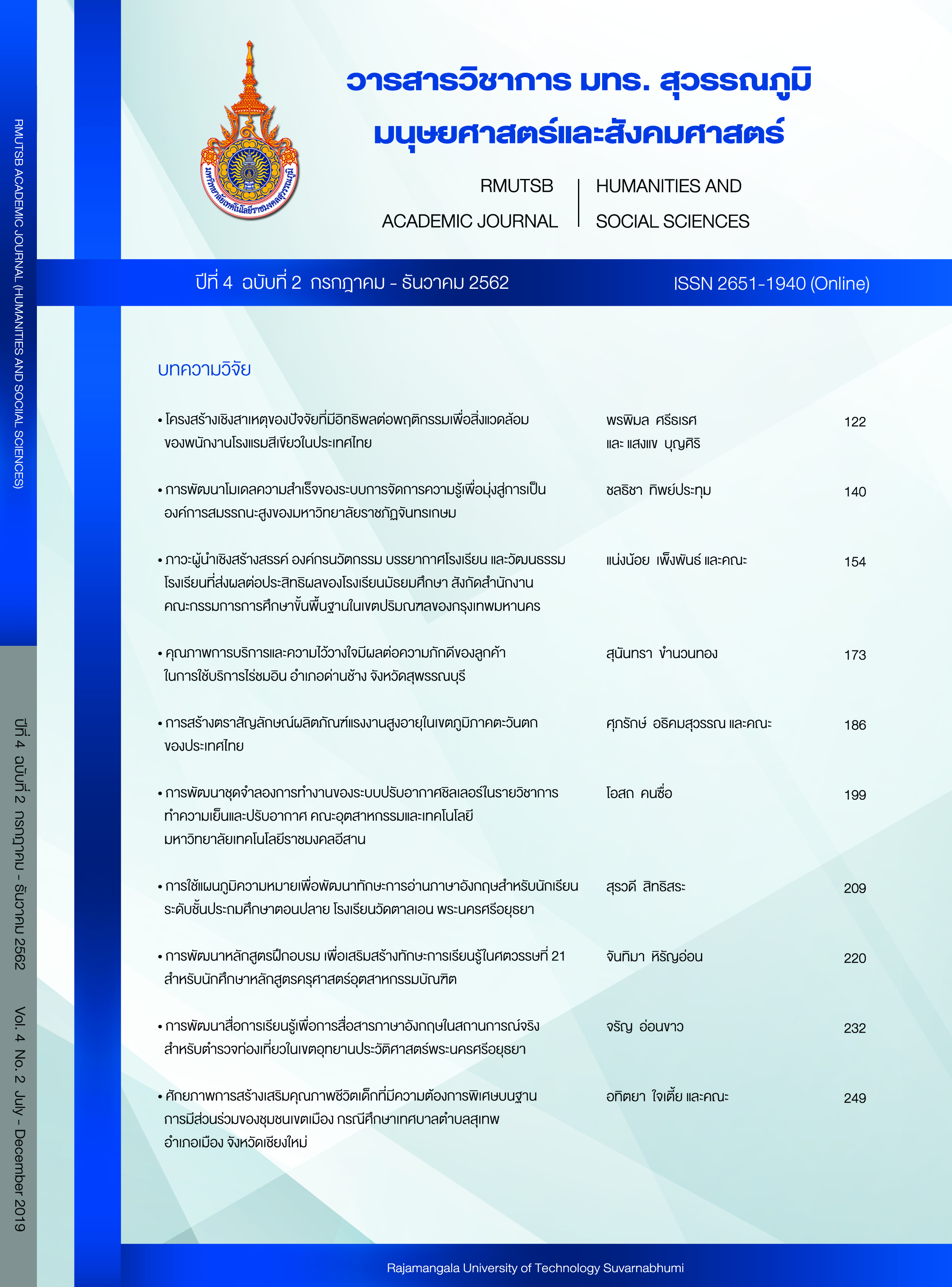The development of chiller system simulator package for refrigeration and air-conditioning course, Faculty of Industry and Technology, Rajamangala University of Technology Isan
Main Article Content
Abstract
The objectives of this research were to study and compare learning achievement of students studying in the course of refrigeration and air-conditioning employing the simulator package of chiller system. The samples of the study consist of forty students. Twenty samples were from forth-year mechanical technology students (MTR4B) and the other twenty samples were from third-year mechanical engineering students (MER3B), registering in the course of refrigeration and air-conditioning at RMUTI SKC. The study was a pretest - posttest designed experiment. The simulator package of chiller system and the pretest and posttest were used as the research instruments. The data were statistically analyzed using mean, standard deviation, and dependent sample t-test. The results showed that the developed simulator package of chiller system could help students understand the operating process and electrical control system better. Moreover, the students could identify the cause of defects in the air conditioning system chillers better as well. Regarding the comparison of the pretest and posttest scores, the mean scores of the post-test were higher than those of the pretest. It was revealed that the students’ learning achievement was significantly higher at level 0.01 after implementing the developed simulator package of chiller system in the classroom. Additionally, the students can also apply their knowledge to large-scale chiller systems in the future
Article Details
References
Chusith, P. (2008). A comparative study of learning achievement retention and preference in the use of game teaching and conventional teaching: Industrial technical drawing course. RMUTP Research Journal, 2(1), 96-109. (in Thai)
Deevanichsakul, S., & Sramoon, B. (2016). The instructional package development to subject competency in automotive mathematics of vocational certificate curriculum B.E. 2556 office of the vocational education commission. ITED Journal, 28(97), 81-86. (in Thai)
Li, N., Chang, L., Gu, Y. X., & Lim Duh, H. B. (2011). Influences of AR–supported simulation on learning effectiveness in face-to-face collaborative learning for physics. In 2011 11th IEEE International Conference on Advanced Learning Technologies (pp. 320-322). Athens, GA, USA: IEEE.
Nilsook, P. (2000). Computer based simulation (CBS). Journal of Education, 12(2), 47-58. (in Thai)
Pangsri, S. (2007). Creating and evaluating the effectiveness of computer assisted instruction program for reading vernier caliper and micrometer. RMUTP Research Journal, 1(2), 197-202. (in Thai)
Pearmarn, C., & Witta, J. (2014). The development of self-directed supplementary learning module on pneumatics system. ITED Journal, 26(89), 73-78. (in Thai)
Phattiyathani, S. (2003). Educational measurement. (4th ed.). Kalasin: Prasan Printing. (in Thai)
Prompoowong, N., & Witta, J. (2014). The development of self-directed supplementary learning module on hydraulics system. ITED Journal, 26(89), 66-72. (in Thai)
Sinthuchai, S., & Ubolwan, K. (2017). Fidelity simulation based learning: implementation to learning and teaching management. Journal of The Royal Thai Army Nurses, 18(1), 29-38. (in Thai)
Tangam, W., & Polyiam, U. (2007). The learning styles of students of RIT Chotiwet Campus. RMUTP Research Journal, 1(1), 51-58. (in Thai)
Yakhanthip, T., & Jedchroenruk, S. (2014). Construction and efficient validation of online lesson on the refrigeration and air-condition. ITED Journal, 26(90), 50-56. (in Thai)


